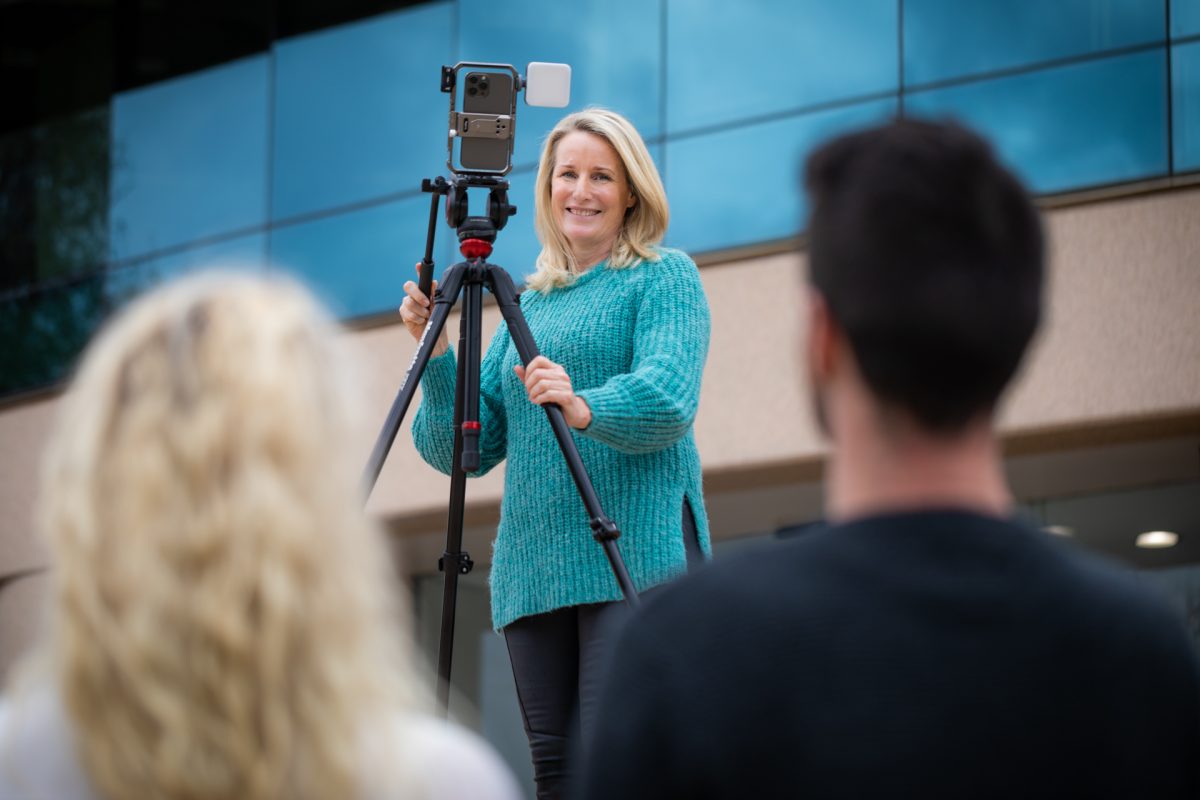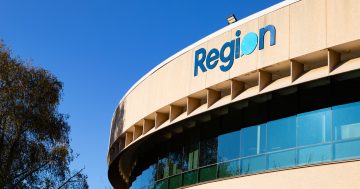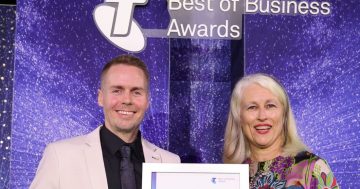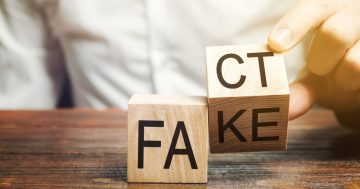
Kim Treasure in the field for Region. Photo: Michelle Kroll.
A Region Media journalist is among the first cohort to graduate from Google’s Digital News Academy (DNA), established in 2022.
Region content director Kim Treasure was a participant in the academy, a training program operating through technology giant Google in partnership with News Corp and the Melbourne Business School.
The DNA is open to journalists from any media operation and the first group included a number from smaller, independently owned media companies like Region.
“The Digital News Academy has come along at just the right time for Region,” Kim says.
“As a rapidly expanding digital news organisation, we are growing the next generation of journalists to serve regional Australia through our own in-house resources and access to external experts.
“Region is committed to training journalists to better serve the communities they live in and the DNA has added a whole extra dimension to what we can offer.”
DNA participants included journalists at all stages of their careers and the course has been rigorous in its approach to intensive digital media training.
Google says this is the first academy of its kind in the world to offer a curriculum wholly devoted to digital storytelling. The program won gold in the prestigious international 2022 CLO Learning In Practice Awards for Excellence in Academic Partnerships.
Working in ‘sprints’, participants studied data journalism, in-depth online investigative reporting, the effective operation of social media channels, multichannel and vertical storytelling, podcasting, and targeting specific audience segments.
The intention is to equip journalists with the skills they need for the digital age, enabling them to create and publish content in the field and understand the challenges of digital publishing. These are substantially different from old-school newspaper, radio and television operations.
During the course, participants were all asked to submit an entry for a study trip to San Francisco and Los Angeles, including a newsroom tour at the Wall Street Journal, and a visit to Google’s Moonshot factory, a hub for exploring how to solve major world problems.
Kim was one of the 20 final participants who won a place and says both the course and tour were hugely valuable for journalists entering a new media age, where time-honoured presumptions about information and processes can be upended in the digital universe.
“Teaching journalists how to interrogate data, flush out ‘fake news’ and better understand their audience can only be a good thing for the industry as a whole,” she says.
“We currently have another two journalists getting close to completing the course and half a dozen more eagerly awaiting the opportunity. I’ve loved being part of the first cohort and can’t wait to see how the program develops.”
















